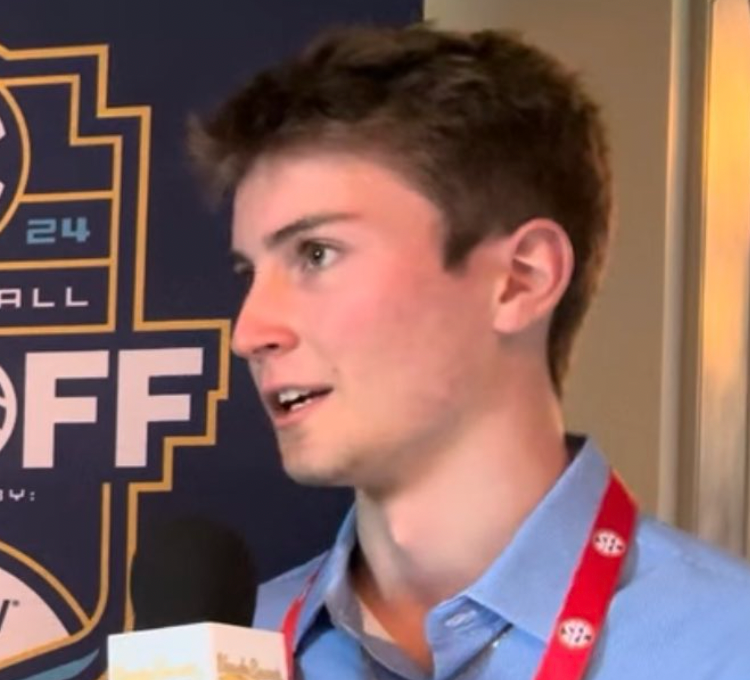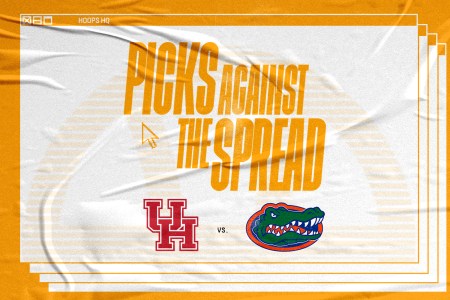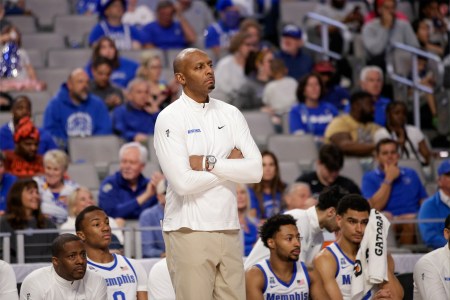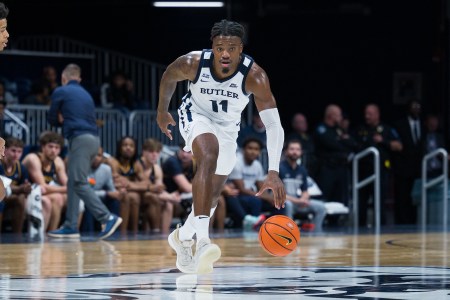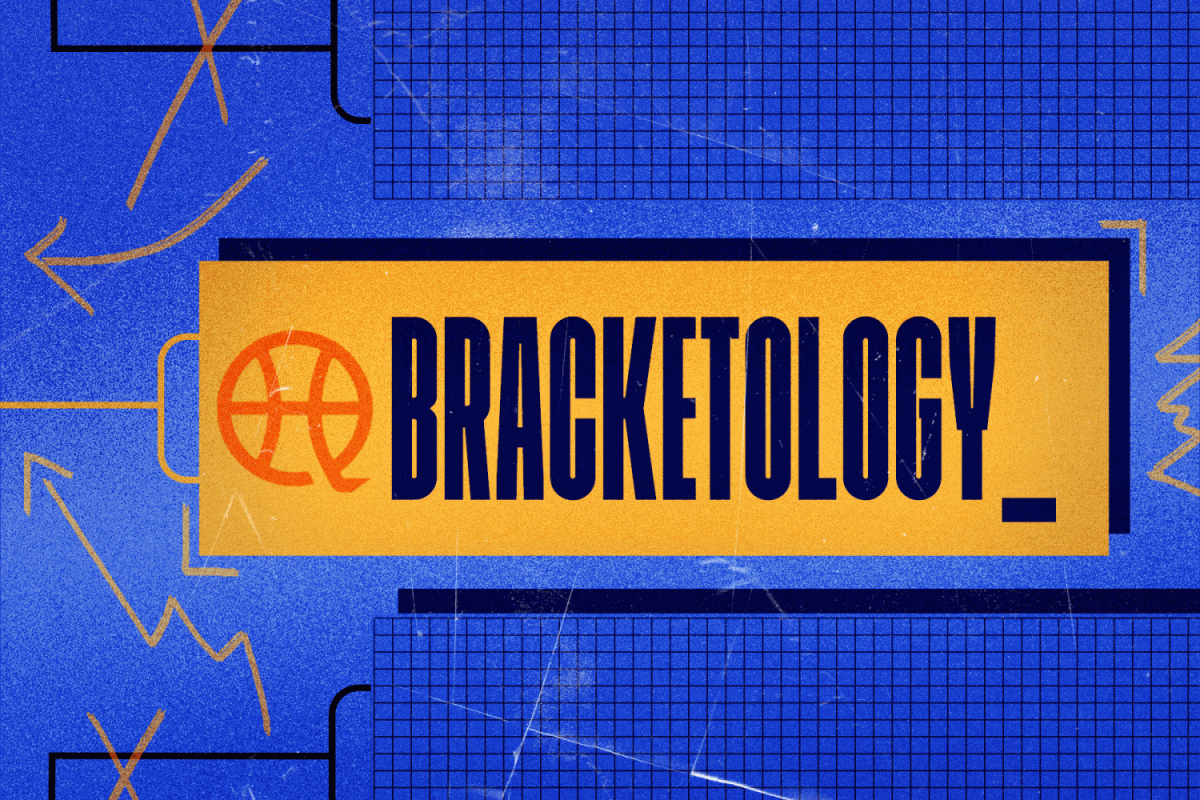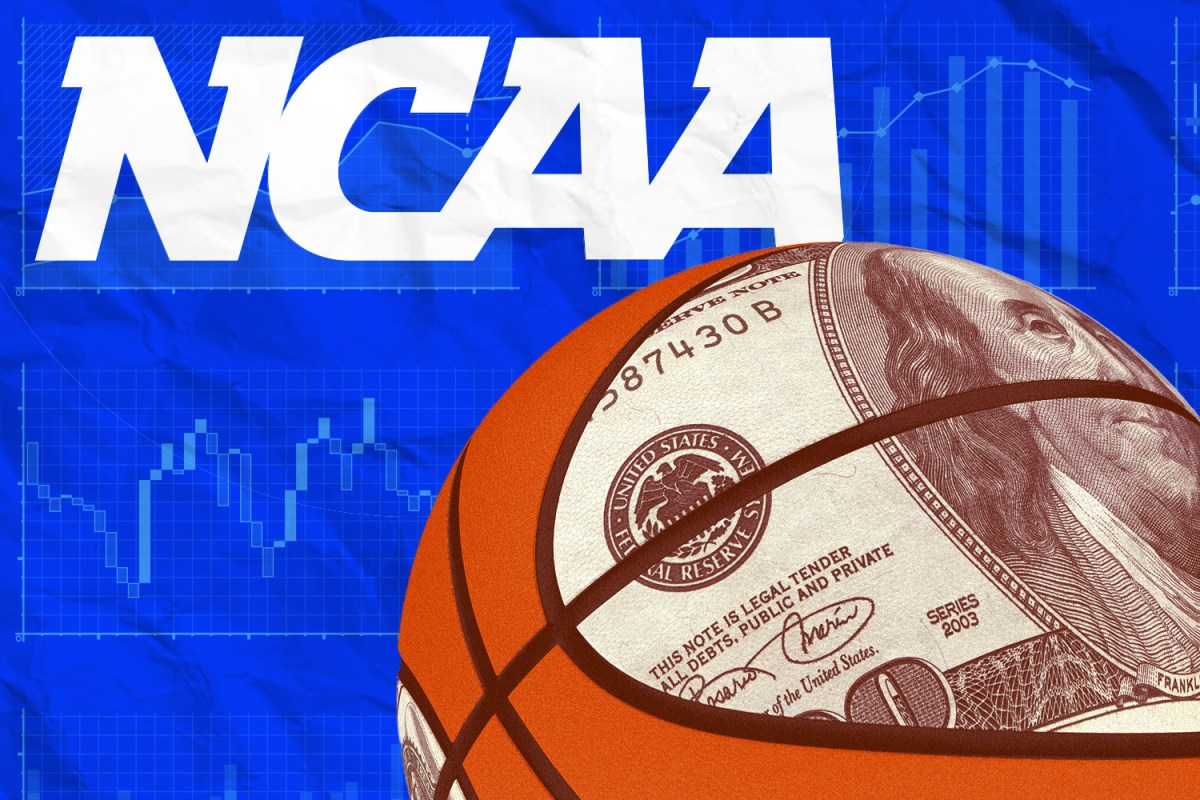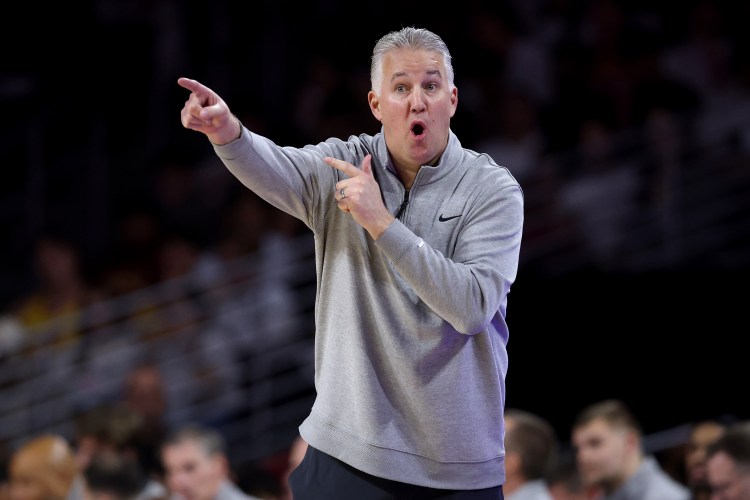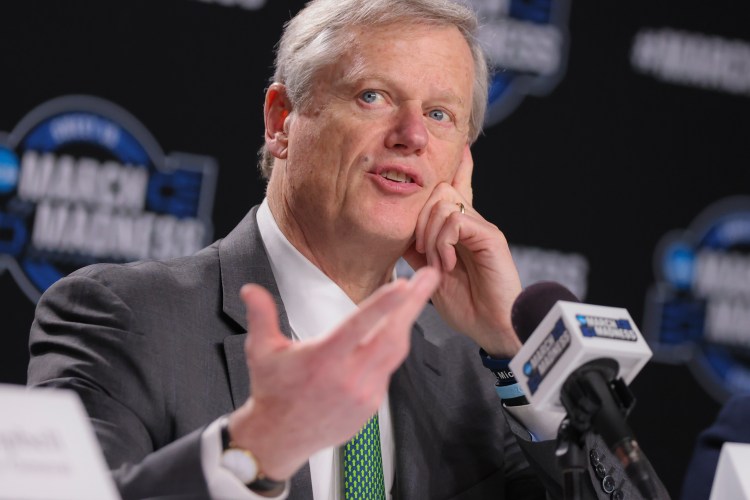Ben McCollum is only eight games into his first season as the head coach at Drake, but he’s already proving that Division II guys can win at this level. That goes for his players, too.
McCollum’s Bulldogs are 8-0 with convincing wins over Miami and Vanderbilt as well as a Charleston Classic title. Drake sits at No. 45 in the NET rankings and No. 76 in KenPom. It has also gotten itself in top 25 conversations. McCollum has been aided in his tremendous start by four players that followed him back to his home state of Iowa from D-II Northwest Missouri State, where he was head coach for 15 years and won four NCAA championships. “Division II guys can play, too,” McCollum told Hoops HQ. “There’s guys at Division-II’s that can play in Division-I, absolutely. There’s a lot.”
All of this is remarkable given that the Bulldogs were picked to finish fifth in the Missouri Valley Conference’s preseason poll. Then again, that snub is also part of the reason the Bulldogs are winning. “It’s the first time these guys have picked anything but first in 10 or 11 years,” McCollum says. “I think you just take it with a chip on your shoulder.”
Drake’s undefeated rush out of the gate is one of the more surprising storylines in a college basketball season that is already full of them. Take, for example, sixth-year guard Mitch Mascari. Upon graduating from Northwest Missouri State, he decided to take a job in the finance industry. He put his name in the transfer portal just to see if he might draw interest. When McCollum called to offer him a scholarship to Drake, Masacari decided he couldn’t turn down the opportunity. Now, he’s averaging 12.6 points per game, third-highest on the team. “I didn’t picture myself playing, but thinking about it more, I wanted to keep competing, I wanted to keep playing for [McCollum],” Mascari says. “I did accept the job and then coach McCollum came here and then ended up asking me to come. Can’t turn that down.”
“He took [the job] and ended up being in the portal and I’m like, ‘Hey, if you’re gonna play, come play [at Drake],” McCollum says. “He ended up coming back and it was well worth his time.”
McCollum is leaning heavily on another Northwest Missouri State transfer, junior point guard Bennett Stirtz, to deploy the patient, plodding, efficient style that has long been a hallmark of his teams. Drake ranks 335th out of 364 teams in KenPom’s adjusted tempo metric. “We’re not trying to slow it down,” McCollum says. “I think that’s the fallacy behind it. We just won’t take the shots that everybody else will take. Everybody wants to play fast and that’s great. Their definition of fast is shoot it quick. My definition of fast would be to play with pace, get the ball up the floor. If you get a shot within two seconds then you shoot it. If you get a shot within 25 seconds, then you shoot it. But you don’t just shoot it for the sake of creating tempo.”
It’s difficult to be a new coach at a new level with new players, but McCollum’s decision to bring in guys who played for him in the past has given this program some badly-needed continuity. Besides Mascari and Stirtz (the team’s leading scorer at 18.8 points per game), the Bulldogs’ roster also includes senior forward Daniel Abreu and senior guard Isaiah Jackson, who also played under McCollum — and with each other — at Northwest Missouri State. “They’ve just played together for so long so they know what to do,” McCollum says. “We have so many people that are returners so that helps us in these early-season games.”
The best thing about recruiting players he has already coached is that McCollum knows their personalities. That’s an advantage he had over other coaches who were meeting their transfer targets for the first time. “You just can’t build a culture without the right people,” McCollum says. “Everything about culture is people driven.”
If his resume is any indication, McCollum has had the right people surrounding him for a long time. He was named NABC D-II national coach of the year five times, the most of any coach in D-II basketball history. In his 15 seasons at Northwest Missouri State, McCollum’s teams won 12 Mid-America Intercollegiate Athletics Association regular season titles and posted a 394-91 record.
All of this raises a question: Why did it take so long for McCollum to get a Division I job? McCollum doesn’t quite have an answer, but he hopes his early success as well as the one Mike DeGeorge, formerly of Division II Colorado Mesa is having at Cal Poly, might pave the way for others like him to get a shot. “The best coaches, they can coach a first grade team and they can coach a power-five team,” McCollum says. “I don’t think a lot of people understand Division II. When people go to evaluate coaches, I’m not sure that some of them totally understand what they’re looking for. [They’re thinking], I know he wins, but how he builds his program and what he does, does that translate to our level?”
McCollum has served notice in those early season games that he is well-prepared for this transition. “He’s a really good coach, there’s no doubt about that,” FAU coach John Jakus said after the Bulldogs defeated his team, 75-63, in the semifinals of the Charleston Classic. “He is as good as anyone at slowing it down and executing his actions. They’ll have a good year, I’m sure of it.”
“They’re a well tuned machine, well coached.” added Vanderbilt coach Mark Byington, whose team also lost to Drake in Charleston, 81-70. “They take advantage of your mistakes, they’re really good at that. They’re physical. You don’t look at them and see that but their screens are great. It’s an older, wiser team that kind of knows the knicks and knacks of how to play.”
McCollum’s unique background has made the Drake story irresistible, but he is well-aware that the truly hard work lies ahead. In the short term, however, he is appreciative that the fast start is bringing some buzz to his program and the players who trusted him enough to join him in Des Moines. “Everything that’s good about the world I want [people] to see in our team,” McCollum says. “It’s just tough kids that serve each other and play with an elite amount of energy and want for each other’s success. How tough are we? How do we handle adversity, success, all those different things? Those are the most important things and that’s ultimately what wins you games.”


